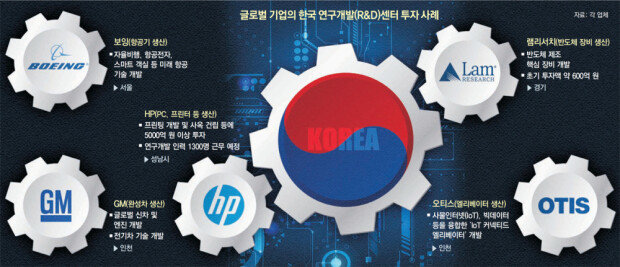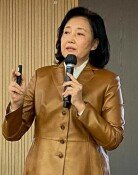Home to great talent, S. Korea makes perfect R&D partner
Home to great talent, S. Korea makes perfect R&D partner
Posted November. 06, 2019 07:17,
Updated November. 06, 2019 07:17

Last Friday, Boeing opened its Boeing Korea Engineering and Technology Center (BKETC), which will develop aircraft manufacturing technologies. Asked why the U.S. aircraft manufacturer chose Korea for its new R&D center, Boeing Korea President Erik John said Seoul was an obvious choice as it is home to super advanced people.
The BKETC is Boeing’s 12th global research center and the second in Asia that was established by the company. The new institute will be tasked with developing the next generation of aviation technologies such as autonomous flights, artificial intelligence and future aircraft cabins. In 2015, the manufacturer closed down the aircraft maintenance center located in Yeongcheon, North Gyeongsang Province. However, it is investing more heavily in R&D.
John said the headquarters were impressed by Korean employees who produced great results in AI and avionics in a short period of time even though he cannot specify which technologies, adding that most Korean interns are hired full time after their internship.
Global businesses are increasingly shutting down their factories or decreasing their production volume in Korea due to strong unions and rising labor costs. On the other hand, they are increasing their investment in R&D in the country, which presents opportunities for foreign companies to collaborate with Korean companies that are successful in the global market. However, what attracts them even more is the skill sets and work ethics that Korean people have.
Foreign Direct Investment (FDI) also reflects the trend. According to the South Korean Ministry of Trade, Industry and Energy, FDI in advanced technologies and new projects increased from about 230 billion won in 2015 to about 440 billion won in the first half of 2019. The pharmaceutical industry, which is one of the highest value-added industries, saw a 16 percent increase in R&D investment by global pharmaceutical manufacturers that operate in Korea. It went up from about 400 billion won in 2017 to approximately 470 billion won in 2018.
The Korean industry is moving away from manufacturing to higher value-added areas such as the design and development of high technologies, which is viewed as a natural transition by many experts. However, some argue that Korea needs to maintain its manufacturing industry to some extent as it creates stable jobs. This aspect of manufacturing was highlighted in the aftermath of the 2008 global crisis, leading many nations to scramble to regain their manufacturing industries’ competitiveness.
“In an effort to remain competitive, Germany has introduced ‘Industry 4.0’ policies, which aim to maximize the entire production process with the Internet of Things,” an IT expert said. “The South Korean government should come up with ways to tap into the great pool of talent we have to revive manufacturing.”
bjk@donga.com







